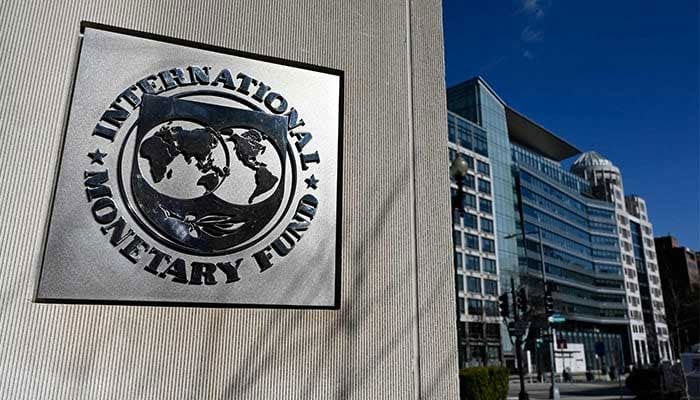Talks continue with IMF on tax issues: minister
Ali Pervaiz Malik says govt has no choice but to introduce new revenue measures, improve its tax compliance
June 10, 2024

- Ali Pervaiz Malik reaffirms resolve to protect low-income class.
- He says that there will be "no holy cows" regarding taxes.
- Hints at increasing cost of "non-compliance" for avoiding tax net.
ISLAMABAD: Minister of State for Finance and Revenue Ali Pervaiz Malik has reassured that not only the government has taken up the issue of income tax with the International Monetary Fund (IMF) but has also advised the lender on tax exemptions.
"[We] have presented our suggestions to the IMF on the issue of tax exemptions," Malik said while speaking to Geo News ahead of the budget for the fiscal year 2025.
Stressing that the negotiations with the Washington-based lender were continuing in a positive manner, the minister reassured that all efforts were being made to protect the low-income group from soaring inflation.
"Prime Minister Shehbaz Sharif has directed to ensure relief for low-income class," he said while adding that Islamabad has presented its point of view to the Fund on taxation.
His remarks come as the IMF, according to a The News report, has conveyed to the Pakistan authorities that the next bailout package under the Extended Fund Facility (EFF) would only be considered after presenting an aligned budget and securing its approval from parliament.
The arrangement could pave the way for kick-starting formal parleys and signing a staff-level agreement for clinching the fresh bailout package with the possibility to augment it through climate finance in the range of $6 to $8 billion.
The Fund has also asked Pakistan to establish a National Tax Council (NTC) to harmonise the taxes among the Centre and the provinces and raise provincial taxes, especially on agriculture, sales tax on services and property tax.
A day earlier, while speaking on Geo News' "Naya Pakistan" show, Malik said that the government is committed to reducing the taxes on the salaried class and protecting those whose electricity usage is less than 200 units.
When asked about the pressure from the IMF to hike the taxes and the already existing burden on the salaried class compared to the wholesale and export sectors, the minister reassured that there will be "no holy cows" when it comes to the imposition of taxes.
Furthermore, he categorically rejected the "exacerbated" rumours circulating regarding the increase in taxes.
On the issue of a hike in the tax on capital gains in the stock market, the minister said that the government aims to ensure a fair and just contribution from every segment of society.
He also revealed that the federal government will increase the cost of "non-compliance" for those who choose to stay outside the tax net and will try to put as much as less of a burden on those who file their tax returns responsibly.
Responding to a query whether there will be a 1% increase in the General Sales Tax (GST), Malik said that the government will focus on direct taxation instead of indirect taxation which, according to him, was regressive.
However, the minister maintained that the government has no choice but to introduce new revenue measures and improve its tax compliance and enforcement so as to not risk its relationship with the IMF.



